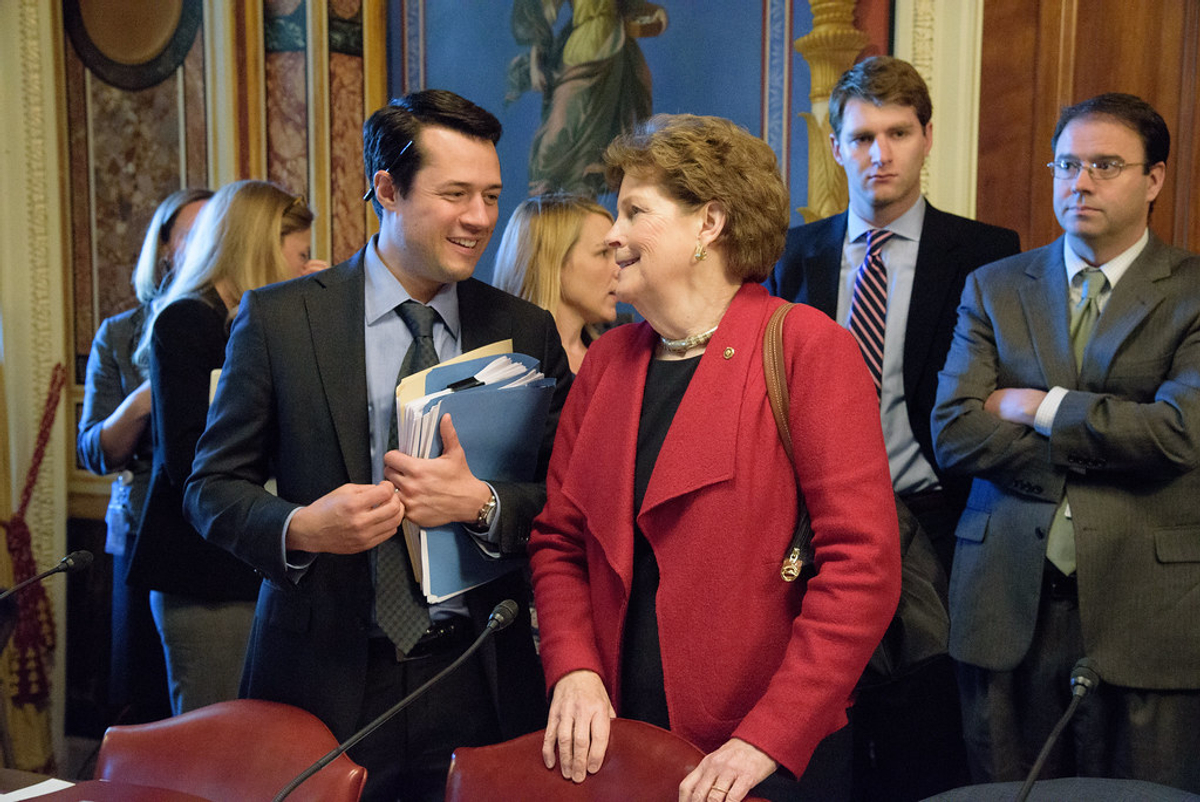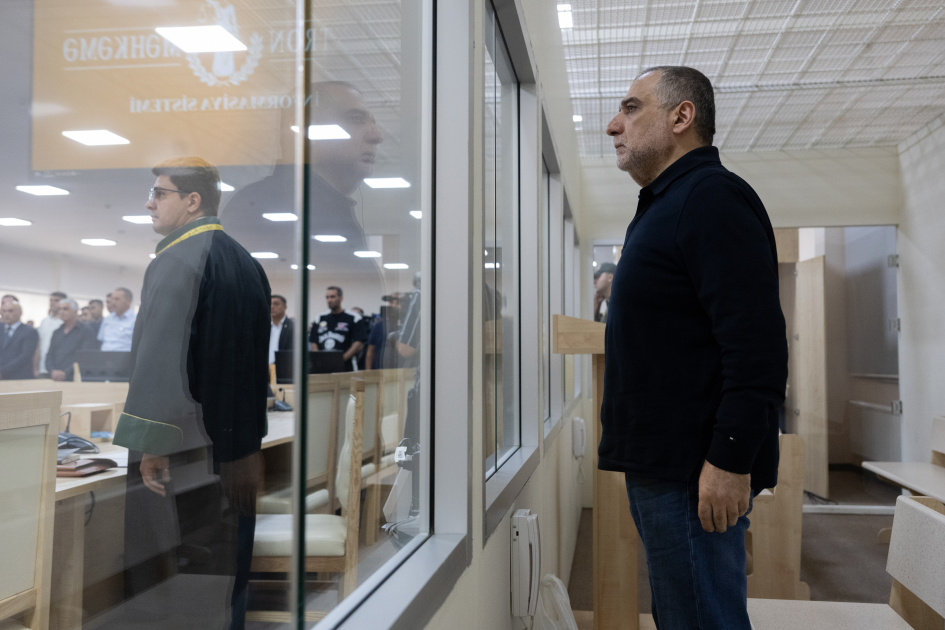‘Not in America’s Interest’ – Top Senator Warns ‘Trump Being Played’ by Putin as Rivals Exploit US Vacuum
By Alex Raufoglu
Copyright kyivpost

WASHINGTON DC – In a scathing critique of American foreign policy, US Senator Jeanne Shaheen (D-NH) warned on Tuesday that President Donald Trump is being “played” by his Russian counterpart, Vladimir Putin, and that the administration’s “woefully resistant” stance on the war in Ukraine has created a dangerous vacuum for US adversaries.
Speaking at the Council on Foreign Relations, Shaheen, the top Democrat on the Senate Foreign Relations Committee, detailed a pattern of inaction she believes is undercutting US interests and emboldening aggressors.
She said that Putin has now “crossed… seven of deadlines” that Trump has set to end Russia’s war in Ukraine, with no consequences.
“Hopefully at some point, President [Trump] is going to understand that he’s being played and that that is not in America’s interest,” she said, emphasizing that this perceived weakness sends a worrying message to allies and adversaries alike.
Bipartisan Push for Ukraine
Shaheen’s comments come against the backdrop of a new aid package for Ukraine she is pushing for in Congress. Despite the administration’s recent agreement to let European allies purchase military hardware for Ukraine, the Democrat senator insisted this is not enough.
“While it’s not everything that I think we ought to be doing, I think it’s a step that is more than I thought this [Trump] administration was going to do back in January,” she said.
The senator is a vocal proponent of continued security assistance to Kyiv and has introduced bipartisan legislation with Senator Lisa Murkowski (R-AK) to ensure Ukraine’s defense. The proposed bill would provide another package of arms and support, and would also make use of seized Russian assets to help fund the efforts.
Strategic Importance of Continued Support
This effort, Shaheen argued, is not just about helping a foreign nation. “The Ukrainian army is the most technologically advanced right now in Europe. It’s the biggest army in Europe, and it is not in our interest to have that army in the Russian orbit,” she said.
She warned that without a strong US presence and a lasting peace agreement, that army could fall under Russian influence.
She also pointed to the tactical advantage the US has gained by supporting Ukraine’s defense, saying the Ukrainians “are sharing those lessons from the battlefield with our United States military. They’re helping us prepare for the wars of the future.”
This, she said, makes supporting Ukraine a strategic investment for the US, not just a charitable act.
Shaheen also spoke to the broader strategic implications of the conflict, warning that if the US walks away, it will embolden other adversaries. “If we walk away from this fight, we have emboldened Xi on Taiwan,” she emphasized.
Global Vacuum Filled by Adversaries
Shaeen’s criticism of the current US administration extends far beyond Ukraine, encompassing what she sees as a chaotic retreat from the global stage. She highlighted a recent summit in Shanghai where leaders from Russia, China, India, and North Korea were seen together. She scoffed at the idea that the lack of formal agreements between these nations made them any less of a threat.
“What difference do the agreements make? … when China is funding Russia’s war machine, when Kim Jong Un is sending soldiers into Ukraine to fight for Russia? Who cares if they haven’t signed a security agreement? They’re helping each other, and that should be seen as a threat to the United States, because it is a threat,” she said. This perceived disengagement, Shaheen said, is being exploited by rival powers. She cited a recent report from her committee, “The Price of Retreat,” which she says documents how Beijing is “filling the vacuum that’s been left by US withdrawal.”
She also criticized the administration’s inconsistent use of tariffs, specifically its decision to impose tariffs on India for its oil purchases from Russia but not on China, which she said was due to China’s threats to “deny your critical minerals” and other essential goods.
Erosion of Diplomatic Institutions
The senator also criticized the administration’s dismantling of US diplomatic infrastructure and its withdrawal from international bodies.
She pointed out that the US has no ambassador to the UN because of an internal struggle “between the isolationists and those people who support traditional Republican foreign policy that’s not in America’s interests.”
She said her report includes “instance after instance where we stopped the foreign assistance we had going on in particular countries, and China came in, and they didn’t even start a new, different program. They just picked right up.”
This, she argued, allows China to portray itself as “the reliable partner” while intimating that the US is not.Shaheen also touched on the administration’s foreign aid cuts and its proposed budget, which she said would gut programs that are vital to US national security.
She spoke of programs like PEPFAR, which has saved millions of lives, and argued that “gutting them in the name of ‘reform’ is dangerous.” She urged the public to see foreign engagement not as a handout, but as a matter of “kitchen-table security,” costing “less than one percent of the federal budget” while it “builds markets, prevents crises and supports American jobs.”
An Indictment and A Call to Action
The senator’s speech was a broad indictment of what critics of the Trump administration see as an incoherent and self-defeating foreign policy.
She called for a return to a pragmatic, bipartisan approach, arguing that American foreign policy must not “whiplash after every election.” She maintained that a bipartisan approach is essential to maintaining US commitments to its allies.Her remarks also reflected a growing frustration among foreign policy traditionalists, both Democrat and Republican, that the US is abandoning its global leadership role.
The senator’s central argument is that the administration’s actions are not only failing to achieve its stated goals but are actively making the US less safe by emboldening its adversaries and also argued that the administration’s policies have created a strategic void that is being eagerly filled by an emerging axis of autocracies. This, she says, is a direct threat to American interests and global stability.
Shaheen’s emphasis on bipartisanship was a key part of her message, as she emphasized that a united front is the only way to counter the growing influence of US adversaries. She concluded that the US must act with a clear and consistent strategy to ensure that its commitments endure.



